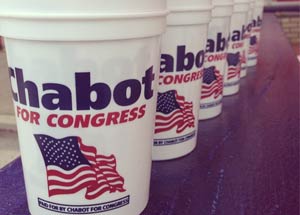In a couple of weeks, President Obama will be making his State of the Union Address to Congress and the nation. 50 years ago, another President, Lyndon Baines Johnson (LBJ) gave his State of the Union Address, just two months after the assassination of President Kennedy.
It wasn’t a particularly memorable speech. Except for one line: “This Administration today, here and now, declares war on poverty in America.” That “war on poverty” would take the form of passage, through a heavily Democratic congress, of a series of pieces of legislation which we live with to this day.
It seems that after half a century, reviewing the effectiveness, or lack thereof, of the War on Poverty, is long overdue. So here goes.
LBJ’s solution to poverty was more and bigger government. New (and expensive) programs like Job Corps, Food Stamps, Medicaid, The Legal Services Corporation, and Head Start, to name but a few, collectively became known as LBJ’s “Great Society.” In many ways, it built upon and expanded President Franklin Delano Roosevelt’s New Deal programs which were aimed at bringing America out of the Great Depression. (Many argue that those New Deal programs, even though they cost a lot, didn’t ultimately end the Great Depression – World War II did.)
So how effective has LBJ’s War on Poverty been over the last 50 years? Unfortunately, not very effective. The poverty rate in America is virtually the same now as it was back in 1964 when LBJ declared the War on Poverty. And that’s after the expenditure of $20.7 trillion (with a “T”) of your hard-earned tax dollars on anti-poverty programs.
In fact, arguably much of the money has been counterproductive, causing more harm than good. For example, in order for a family to receive welfare payments, an employed adult male could not be living in a home with the children. This discouraged marriage and two-parent families. Back in 1963, before the start of the War on Poverty, only 6% of children in America were born out of wedlock. Today that figure has skyrocketed to 41%! The government, in effect, became the father in the household; rather than a wage-earning, role model adult male. This lack of a father in the home has led to a wide array of social problems, from poor attendance and behavior at school, to trouble with the law, to high rates of incarceration.
Even though poverty rates haven’t come down in 50 years of Great Society programs, one might argue that the experience of poverty today isn’t as grim as it was 50 years ago. And that’s probably true. It’s not uncommon for a family below the poverty rate in the U.S. today to have a car, cable T.V., air conditioning, a computer, a cell phone, etc.
It’s important that we measure the success or failure of the Great Society by the standard that LBJ himself set at the time of his declaration of the War on Poverty, which was self-sufficiency – that the poor wouldn’t just be stuck on Welfare (or the dole as it was often referred to back then.) President Johnson declared:
And by that measure, LBJ’s own measure, the War on Poverty has been an abject failure. Rather than assist America’s poor to become self-sufficient, and thus not need government assistance, far too many people have become dependent upon the government’s help, for life. And the family structure, particularly in many urban poor neighborhoods, has been decimated, often as a direct result of the requirements to receive aid in the first place.
I would submit that we’d be a lot better off if that $20.7 trillion spent over the years would have remained in the pockets of the hard-working taxpayers of this nation, to save or spend as they saw fit, to spur economic growth, and create more jobs for more people. After all, it’s been said that the best anti-poverty program, is a job.





